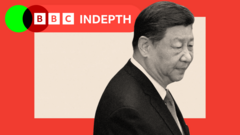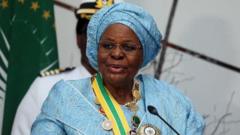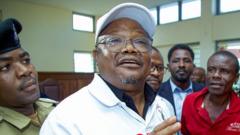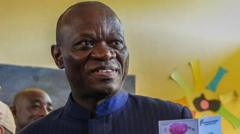In a year that has seen significant setbacks for long-standing liberation parties in southern Africa, SWAPO in Namibia is gearing up for one of its toughest elections amid rising public discontent over social issues and governance.
SWAPO Faces Critical Election Test in Namibia's Unstable Political Landscape

SWAPO Faces Critical Election Test in Namibia's Unstable Political Landscape
As voters prepare to head to the polls, the South West Africa People’s Organization encounters unprecedented challenges reflecting broader political unrest in southern Africa.
Voters in Namibia are set to cast their ballots on Wednesday, facing what could be a pivotal moment for one of southern Africa's historic liberation parties, the South West Africa People’s Organization (SWAPO). The party, in power since Namibia's independence from colonial rule in 1990, is grappling with nationwide discontent characterized by soaring unemployment, rampant corruption, a critical housing crisis, and deteriorating living conditions.
This year has presented a barrage of electoral defeats for similar liberation movements in the region, suggesting a significant shift in voter sentiment. For instance, in May, South Africa's African National Congress (ANC)—the party synonymous with the end of apartheid—experienced a profound loss, failing to secure an outright majority in Parliament for the first time since 1994. This prompted the ANC to form a coalition government with opposition parties for the first time in its democratic history.
In Botswana, the Botswana Democratic Party, which has held the reins of government for 58 years, faced an astonishing defeat in last month’s elections, transforming from the largest party in Parliament to the smallest.
Meanwhile, Mozambique's Frelimo party, which has dominated since independence in 1975, declared victory in its recent elections amidst allegations of electoral manipulation, igniting protests that have turned violent and cost numerous lives. This brewing unrest is likely to echo through the dynamics of SWAPO's electoral performance, pushing the party into a challenging contest.
While it is uncertain whether SWAPO can retain its position of power, recent events paint a complex picture of a region in political turmoil, where newly awakened voter expectations may reshape the future of long-established liberation parties.






















